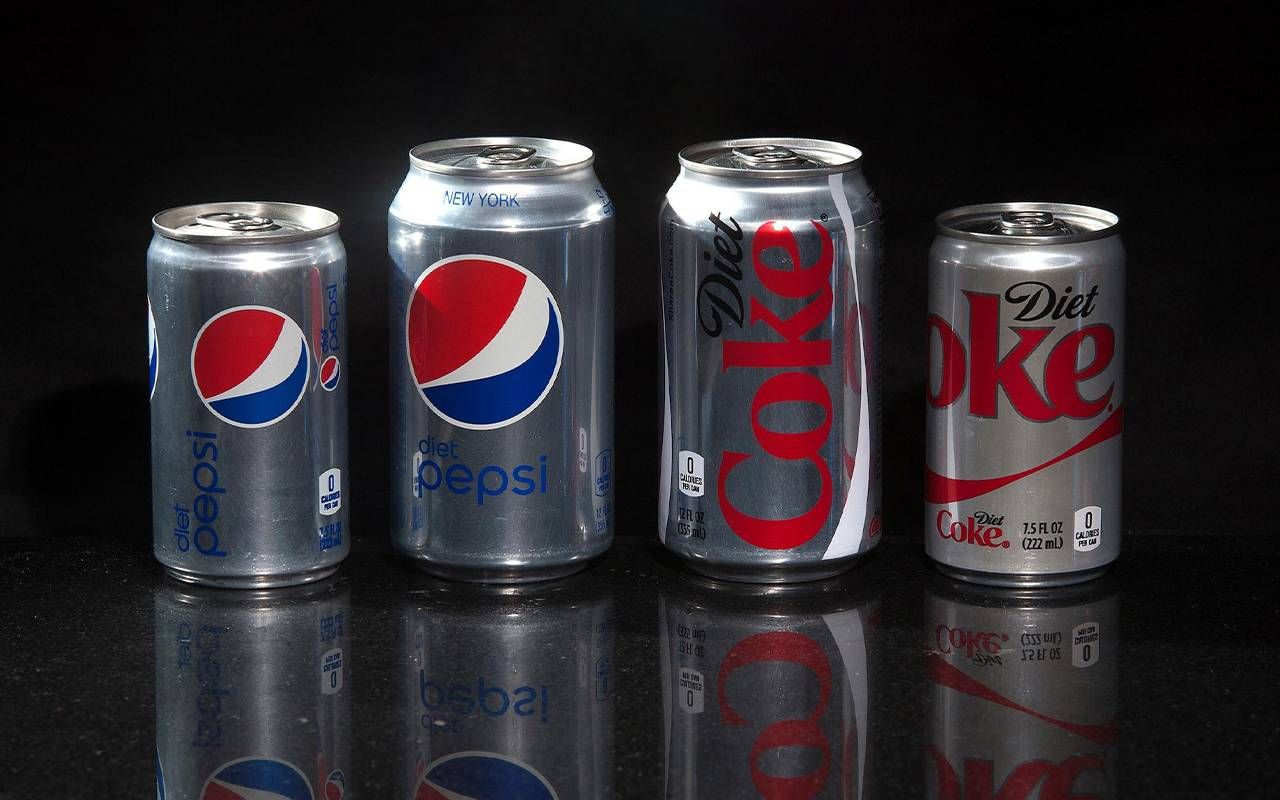What Is the Link Between Aspartame and Cancer?
In a recent report, the World Health Organization said aspartame in large enough amounts may cause cancer. Other experts disagree. We break down the risks.
Ever since I was a kid, I knew my mom couldn't chew gum or drink diet soda. When she did, her arm would throb and go numb for hours, if not days. Through trial and error, she found aspartame, an artificial sweetener, was the culprit. Her symptoms stopped as soon as she cut aspartame from her diet.

And my mom is not alone. Others have felt the effects of this chemical, and studies have proven these symptoms are no fluke. Aspartame is making headlines again as the World Health Organization (WHO) recently announced it may cause cancer.
Older research suggests a correlation between aspartame and neurological symptoms like my mom's liver and immune system damage. But can aspartame cause cancer, too? We'll examine what the experts say and tell you how to protect yourself.
What is Aspartame?
Artificial sweeteners grew popular in the world wars as sugar became scarce. First came saccharin, but it had a bitter aftertaste. Aspartame came on the scene in 1965.
Almost 200 times sweeter than sugar, experts hoped it would help people lower their calorie intake, lose weight, and prevent or treat obesity and diabetes, according to a 2021 study review published in Nutrients.
Does Aspartame Have a Plus Side?
When it was new, companies boasted aspartame could help you lose weight. In addition to the cosmetic benefits, they said it could decrease your chances of developing some chronic illnesses. But experts have since debunked this claim.
Aspartame and other sweeteners can make weight loss harder by affecting your body's ability to manage glucose and maintain weight, says Dr. Aly Cohen, MD, an integrative rheumatologist based in Princeton, New Jersey.
Where is Aspartame?
You can find aspartame in lots of popular products. Here are some of the most common:
- Chewing gum
- Cold breakfast cereals
- Dairy products and toppings
- Gelatin and pudding mixes
- Instant coffee and tea
- Medicines
- NutraSweet® and Equal®
- Packaged baked goods
- Pie fillings
- Soft drinks
If some of these often wind up on your grocery list, you may be at a higher risk of aspartame side effects.
Established Risks of Aspartame
The neurological effects of aspartame are well-known, but its cancer-causing ability has been up for debate. The 2021 Nutrients study review states that once aspartame hits your stomach, it breaks down into methanol and formaldehyde, which can destroy your body.
Aspartame can make weight loss harder by affecting your body's ability to manage glucose and maintain weight.
Formaldehyde can damage your liver and DNA, according to the Nutrients study. Aspartame has also been connected with a higher risk of stroke.
Neurological Affects
Aspartame can activate receptors in your brain that increase brain cell activity. But too much of this, and your brain cells get overexcited and trigger nerve cells when they should be resting. This reaction can cause symptoms like depression, disorientation, headaches, irritability and seizures, to name a few.
If consumed regularly, some research suggests aspartame may be associated with Alzheimer's disease, Parkinson's disease, multiple sclerosis and brain tumors.
Gut Health and Your Immune System
Although experts aren't sure why, artificial sweeteners can impair the good bacteria lining your gut, called your gut microbiome. "We know that the hardiness of the gut microbiome with all its microbes living there in balance is actually well designed to protect the infinitesimally small gut lining," Cohen says.
She adds this lining is about the width of half a human hair but covers the surface area of an entire football field. Your gut microbiome closely connects with your immune system, so the disease can get a stronger foothold when those good bacteria take a hit from aspartame.
Does Aspartame Cause Cancer?
The WHO met with other international health groups on July 14, 2023 to decide on aspartame. They looked at recent studies and found "limited evidence" to show that aspartame causes liver cancer.
Though the evidence was limited, it was enough for the International Agency for Research on Cancer to classify aspartame in group 2B, which means "possibly carcinogenic to humans." One 2022 study found aspartame increased the risk for breast and obesity-related cancers.
A study review published this year found aspartame is not carcinogenic. The catch? This review was partially funded by the American Beverage Association, which has a vested interest in proving aspartame is safe.
With current information, you can balance aspartame's risks and benefits. From there, you can adjust your diet as you see fit.
The Food and Drug Administration released a statement saying they disagree with the WHO's announcement. Perry Wilson, MD, director of the Clinical and Translational Research Accelerator at Yale, commented on one such study connecting artificial sweeteners to cancer. He said you would have to consume 60 packets of Splenda daily to be at risk of cancer. (Splenda contains sucralose.)
If you are getting too much aspartame or you've noticed some of the symptoms above, you may want to know what to do next. You can take steps to restrict your aspartame exposure and protect your health.
Limiting Aspartame
The WHO recommends an aspartame max of 40 milligrams per kilogram of body weight daily. For example, Paul weighs 200 pounds, or about 91 kilograms (kg). At the limit of 40 milligrams (mg) per kg, Paul should have no more than 3,640 mg of aspartame per day.
Cohen says that food production companies don't have to report how much aspartame is in their products or even that they use it at all. No one lists the aspartame levels in their food and drink.
But the University of Alabama says a packet of Equal has 37 mg of aspartame, and a 12-ounce diet soda has about 200 mg. For many, this limit may feel easy to avoid. Others may be getting close to that ceiling. Some people – like my mom – are more sensitive to aspartame's adverse effects and can tolerate very little.
Aspartame Alternatives
Cohen doesn't suggest any alternatives to aspartame. She compares artificial sweeteners to whack-a-mole. Once one sweetener turns out to be unsafe or ineffective, we turn to the next. "We get comfortable with a newer form of cutting calories, so we can fit into our dresses and jeans," she says.
"[Now] that we now know much more of how these chemicals work, it just makes more sense to try to avoid them altogether and reduce risk for not just cancers, but for a variety of metabolic issues, such as obesity and diabetes, but also immune system disorders," Cohen says.
Does this mean you should throw out anything that might contain aspartame? Not necessarily. We all take risks every day. With your current information, you can balance aspartame's risks and benefits. From there, you can adjust your diet as you see fit.
If you feel concerned about aspartame, you can discuss it with your health care provider. They can help you figure out where to cut and what not to worry about.


